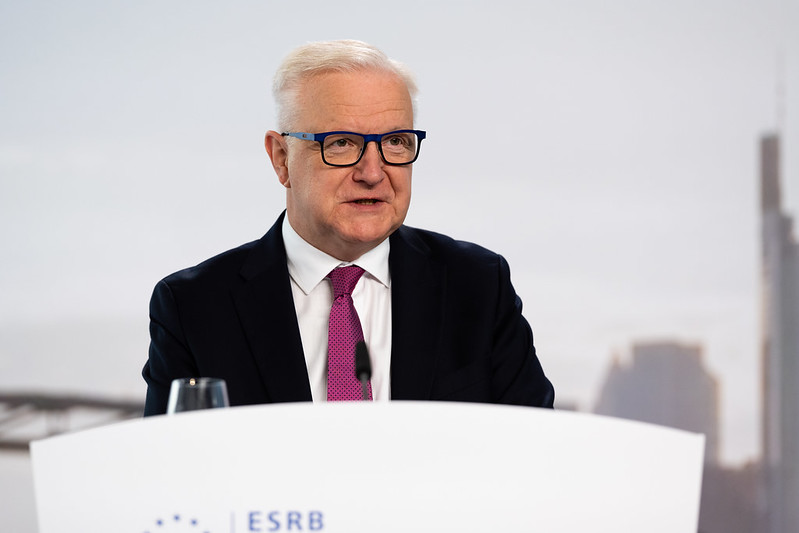By David Barwick – FRANKFURT (Econostream) – European Central Bank Governing Council member Olli Rehn on Tuesday said that the ECB would take interest rates towards a neutral level throughout the first half of next year.
In an appearance before Finnish Parliament, Rehn, who heads the Bank of Finland, called ECB monetary policy ‘relatively successful’ and noted the anchoring of inflation expectations even though wage and service inflation were ‘still stubborn’.
‘Inflation has slowed down quickly to close to our target, but growth in the euro area has still remained positive and the employment situation good’, he said. However, he continued, ‘growth is expected to remain subdued and growth prospects have weakened in recent months.’
Interest rates were clearly headed downwards, but the speed and scope of cuts would depend on the Governing Council’s analysis, he said.
‘If the recent statistical data and the new broad forecast update support the current inflation and growth outlook, interest rate cuts should be continued at the ECB Governing Council's December meeting’, he said.
The ECB would move from a restrictive policy stance ‘towards a neutral interest rate level throughout the spring and winter’, which ‘can mean anything between January and June’, he said.
Rehn observed that markets anticipated the ECB’s key interest rate at just under 2% by the summer.
Under elevated uncertainty and lacking complete information, ‘it is not worth trying to force forward guidance’, he said. Directional guidance was ‘indeed justified, as long as we remember to emphasize the dependence of decision-making on economic data and the analysis of growth and inflation dynamics (data-dependency).’
According to Rehn, prospects for growth in the euro area had apparently ‘weakened slightly’ since September. ‘Although the data from the third quarter of this year were slightly better than expected, the recent data as a whole point to a slower development than the September forecast’, he said.
‘In particular, the situation in the Eurozone industry is still weak, and the forward-looking indicators do not point to a quick turnaround’, he added.

